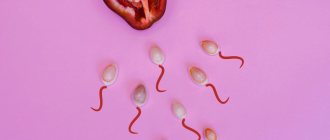Modern science connects periods of sleep and wakefulness of a person with changes in illumination, i.e. change of day and night. These so-called circadian rhythms alternate every 24 hours. During the day, we feel various fluctuations in activity, ranging from the highest rise in strength to fatigue and the need for rest.
Sleep is a period of restoration of vitality and energy, during which our brain is not sensitive to external stimuli, but is as active as in the waking state.
What happens to the body during sleep
When a person falls asleep, the brain puts the body into a special mode. Reflexes and reactions to external influences are reduced. A sleeping person is relaxed, the pupils constrict, and muscle tone decreases throughout the night. Only the muscles of the bladder, eyelids and rectum remain tense.
Heart rhythms become slower, breathing becomes calmer. The activity of the digestive process and the production of saliva decreases, so doctors do not recommend eating before bed. In addition, the temperature drops slightly and more sweat is produced.
Simultaneously with the external manifestations of sleep, the brain is activated. Proteins are replaced, body cells begin to recover and multiply.
However, it cannot be said that all this happens in one phase of sleep. Scientists distinguish slow (non-REM) and rapid (REM) sleep, as well as several stages within them.
Orthodox (slow wave) sleep
It all starts with falling asleep. In the first stage, which lasts up to 15 minutes, the person becomes drowsy. At this time, a borderline state is possible, when dreams, dreams and even hallucinations interfere with reality. On the electroencephalogram (EEG), this stage is manifested in a decrease in the alpha rhythm of wakefulness and the appearance of low-frequency delta and theta waves.
In the second stage, brain activity weaves “sleep spindles.” These fluctuations in brain activity are named for their characteristic appearance on the EEG. When such “spindles” appear, consciousness turns off and the sleeper can be easily awakened only during the intervals of their appearance. “Sleepy spindles” persist into the third stage.
In the third and fourth stages of slow-wave sleep, the delta stage, sleep is very deep and it is very difficult to wake a person. During these periods, outbreaks of sleepwalking, nightmares and most of the dreams occur, of which no memories remain after awakening.
Snoring also occurs during deep sleep. Since apnea also interferes with normal sleep (and not only those close to you; snorers themselves sometimes wake up from the sounds they make), timely treatment of snoring will improve the quality of sleep - both your own and those around you.
Adequate sleep is the key to human health
Of course, our brain can be considered the most powerful and mysterious instrument in the world, although it consists mainly of fat and water. This organ, modest in appearance and weight, does not stop working for a second, consumes 20% of the oxygen we inhale, for which it has a blood supply system more than 160,000 km long. But why do we sleep and spend about a third of our lives sleeping? Let's figure it out.
In light, we distinguish colors well, we can focus both eyes on one object and quickly identify it as a potential threat or prey. Thanks to color binocular vision, a person absorbs more than half of the information visually.
Unfortunately, at night we see rather poorly, and other senses do not help us much. A sober assessment of their merits and demerits inclined our ancestors to a daily lifestyle. Night for us is a time to save energy and restore spent strength.
Our brains have adapted accordingly. It even had a kind of sundial that launched certain processes as if on a schedule. The main regulator in this case is the hormone melatonin, produced by the pineal gland
Light has an inhibitory effect on the activity of the pineal gland, and darkness has a stimulating effect. Melatonin suppresses our activity, changes the level of secretion; other hormones and biologically active substances. Its effect on the body is almost comprehensive.
We should not assume that our brain somehow miraculously turns off during sleep. Under the influence of melatonin, the body relaxes, all senses become dull except hearing, and communication with the outside world is periodically interrupted. At this time, the brain redistributes its activity and continues to work according to the given program.
“Sleep is a natural, regular physiological process that has a strictly organized cyclic structure”
Conventionally, a person’s full sleep can be divided into fast and slow phases. The slow-wave sleep phase, in turn, is divided into 4 more stages.
Stages of full sleep
When you lie down in bed, close your eyes and begin to fall asleep, stage 1 of slow-wave sleep occurs. This stage can be called “drowsiness”, and it usually lasts about 10 minutes. It is characterized by involuntary muscle contractions and small twitches.
Stage 2 sleep lasts 15-20 minutes. Dream-thoughts are typical for her, in which there are no vivid images and dreams are more like reflections. By the way, many people think that they spent a sleepless night thinking, when in fact they slept for several hours. During this time, their brains simply switched between the first two “shallow” stages of sleep.
“Melatonin regulates the activity of the endocrine and digestive systems, blood pressure, is a powerful antioxidant and slows down the aging process, helps the immune system. Melatonin production in humans occurs at night. However, an increase in melatonin levels does not necessarily signal the onset of sleep."
The 3rd stage of healthy slow sleep is even deeper and finally takes us away from reality. In it, dreams acquire imagery, but after a sudden awakening they are not remembered.
Stage 4 of slow-wave sleep is the deepest and most mysterious. Some people believe that at this stage dreams do not happen at all, while others argue that they do happen, but the person simply does not have the ability to remember them. However, it has been established that the phenomenon of sleepwalking, as well as night terrors, appear precisely at this stage.
After all stages of slow-wave sleep have passed, the REM sleep phase begins. In this phase, the most interesting and colorful dreams come to us. Awakening at this stage usually results in increased irritability.
The duration of the REM sleep phase is about 20 minutes. After it, the whole cycle repeats. Both phases - slow and fast - last about two and a half hours at the beginning of the night and an hour and a half closer to the morning.
Sleep gives us rest and restoration, helps us process and store the information received during the day. The slow phase of sleep facilitates the consolidation of learned material, while REM sleep implements subconscious models of expected events.
Without regular sleep, a person loses strength and health
Until recently, insomnia torture was considered one of the most terrible tortures. Already on the fifth day, hearing and vision deteriorate, weight decreases, coordination of movements is impaired, concentration is lost and hallucinations appear.
Paradoxical (rapid eye movement) sleep
For a long time it was believed that the above stages were the only components of sleep. But in 1953, the REM sleep phase was discovered. The state of brain activity at this time is similar to the period of wakefulness, while the sleeper remains almost completely motionless. Therefore, the phase is called paradoxical.
In humans, during REM sleep, high activity of the eyeballs moving under closed eyelids has been recorded. Since at this time a person dreams most actively, it is noticed that the eyes move as if the sleeper were looking at a real object. It is noteworthy that people who are blind from birth “see” sounds and smells in their sleep, but there is no eye movement.
The effect of insomnia on the body
The reasons for lack of sleep can be completely different. Despite the need for a good night's rest, people tend to underestimate its importance and spend their sleep time on various activities. But how productive is such redistribution and why is constant lack of sleep dangerous?
As already mentioned, proper sleep for a healthy adult should last about 7-8 hours. Of course, there are deviations from the norm, depending on individual characteristics, but the average value fluctuates within these limits.
Some people think that the less we sleep, the more we will get done. However, in reality, lack of sleep causes more problems than benefits.
Sleep or die. 9 facts about sleep and its impact on our lives
Natalya Kadya
Partner at the Danevych law firm. Law, neuromanagement expert, leadership development coach
The shorter your sleep, the shorter your life. The tragicomic nature of the phrase is that it is often those of us who don’t sleep enough who believe that they don’t have enough time in their lives to sleep.
Epidemiological studies have shown that the shorter the sleep, the higher the risk of death from any cause, the so-called all-cause mortality.
Matthew Walker, PhD in neurology at the University of Nottingham in the UK, founder and director of the Center for Human Sleep Science, has spent decades researching the effects of sleep on human health. The professor’s clinical practice and the results of many years of research prove that poor and “wrong” sleep damages the brain.
Shall we figure it out?
1. After 20 hours without sleep, the cognitive abilities of the brain decrease to the level of a drunk person.
Even if we don’t feel it, after a long period of wakefulness our brain goes into a mode called microsleep, slowing down or completely inhibiting all reactions.
2. The story that a person only needs 5 hours of sleep a day is nothing more than a story.
In fact, sometimes (but in fact so rare that we have a greater chance of being killed by lightning than being one of those people) there are people with gene polymorphisms that allow them to sleep 5 hours a day and still feel good. For a normal person, 5 hours of sleep inevitably leads to impaired brain function and deterioration of health.
3. Lack of sleep affects DNA.
A study was conducted in which people slept 6 hours for a week, and then their gene levels were compared with their own indicators, but in the same period of time where the study participants slept 8 hours. It turned out that more than 700 genes changed their activity, half of which decreased activity were genes responsible for the body’s immune defense. And the other half - those that increased - are genes associated with the formation of tumors, inflammation, stress and diseases of the cardiovascular system.
4. Changing the clock harms the functioning of the cardiovascular system.
A global experiment is being conducted around the world to switch from winter to summer time and vice versa. Participants in the experiment include 1.6 billion people from 70 countries. Switching to daylight saving time, when we lose only one hour of sleep, leads to an increase in the number of heart attacks by 24%, while the reverse mode (increase per hour) reduces this figure by 21%.
5. It is sleep that ensures brain restoration.
Lack of sleep is one of the most significant causes of Alzheimer's disease.
What happens to the body as a result of chronic lack of sleep
Brain activity decreases
During sleep, the brain is just as active as during wakefulness. Without being distracted by external stimuli, neurons create new connections and produce substances responsible for mood and well-being.
The information received during the day is sorted out and absorbed. But if a person does not get enough sleep or does not get proper rest for a long time, thought processes slow down.
Memory deteriorates, attention is dispersed, it is difficult to analyze and remember new data. In addition, lack of sleep can manifest itself in private headaches.
Stress levels increase, and with it the risk of depression
The body no longer produces enough “happiness hormones” (serotonin, endorphin, etc.), so there is less and less strength and ability to deal with stress. A person becomes irritable, vulnerable, and finds it difficult to tolerate even trivial conflicts.
Levels of cortisol, the stress hormone, increase, which can ultimately lead to prolonged depression.
The body's defenses weaken
Lack of sleep interferes with the production of hormones necessary for the processing of glucose, strengthening the walls of blood vessels and the heart, and the general tone of the body. Some of the most negative consequences of lack of sleep are the risk of developing diabetes and cardiovascular disease, the risk of stroke and decreased life expectancy.
Hormonal balance is disrupted
Androgen hormones in men and estrogen in women cannot be produced normally if a person does not sleep well. As a result, this can lead to sexual dysfunction, including impotence, as well as a depressed mental and physical state.
Weight increases
You sleep less, eat more and as a result you get fat. The hormone leptin, which is responsible for the feeling of fullness, is less produced, so the brain does not receive accurate information about how full the body is. Visits to the refrigerator are becoming more and more frequent. Muscle tissue loses its previous volumes and its place in the body is taken by fat.
Depression, diabetes, heart problems, obesity, stroke - this is not a complete list of the dangers that lack of sleep poses. By buying hours to solve some problems, you can seriously harm your own health.
What are the dangers of lack of sleep?
In some cases, lack of sleep can lead to death. A person who does not sleep for several days will begin to experience hallucinations and general weakness. Even after one night of poor sleep, a person's memory is impaired.
Constant lack of sleep has a cumulative effect. As a result, a person may develop diabetes, obesity, and heart disease. This is especially true for people who work night shifts.
Scientists say that poor sleep is one of the factors leading to the development of Alzheimer's disease. During sleep, the human brain gets rid of amyloid beta. If a person sleeps little, then their accumulation occurs, which leads to serious changes in the brain.











